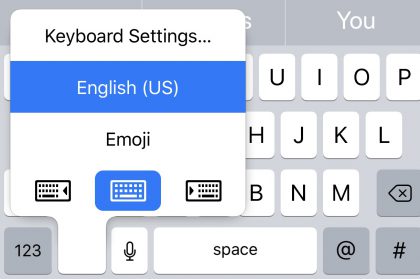This is a two part series, written by David Ruddock, Android Police.
The first part, titled, I’ve never used an iPhone, part one: Switching to the iPhone X and first thoughts, ran a few weeks ago.
The second part, titled, Android to iPhone, part two: What I’ve liked about switching to the iPhone X, ran last week.
There’s a lot to process in these two posts. Some of the comments reflect someone new to the iPhone X and new to iOS. But all in all, solid takes, both the negative and positive.
A couple of highlights from the most recent post:
When I first started using iMessage, I immediately appreciated how much it modernized my texting experience (I do a fair bit of SMSing) when chatting with my iPhone-using friends and family.
And:
I would use an iMessage client for Android in a heartbeat if Apple were to release one. Even if it were terrible, I’d probably seriously entertain paying a subscription for such a thing. It’s not about iMessage being amazing or revolutionary or even an especially good messaging client – it’s just about using the same platform as my friends and family and being able to have those conversation move seamlessly across devices and operating systems.
And:
I know a lot of people turn off haptic feedback on their smartphone. That is because, I have now learned, essentially every Android smartphone has absolutely awful haptics. Your $930 Galaxy Note8 has haptic feedback that is, frankly, bad. So does every other Android phone. Yes, the difference is that clear after going to the iPhone X.
Apple’s Taptic Engine doesn’t just buzz – it clicks, it taps, it knocks. And it can do so with an incredible range of intensities and precision.
And:
I do miss intelligent package tracking being pulled directly from my Gmail (versus now just getting Amazon tracking, which is a bit of a downgrade).
This last was an interesting core difference between iOS and Android. I do see the Android advantage in reading all my emails and understanding that I’ve got a package coming, weaving intel about the package into my notifications.
But the issue is privacy and what is done with my private information. Google profits off the shared details of its users, in the form of steered and focused advertising. That is the price you pay for more informed device intelligence. That price makes me uncomfortable.
All in all, an insightful read.

